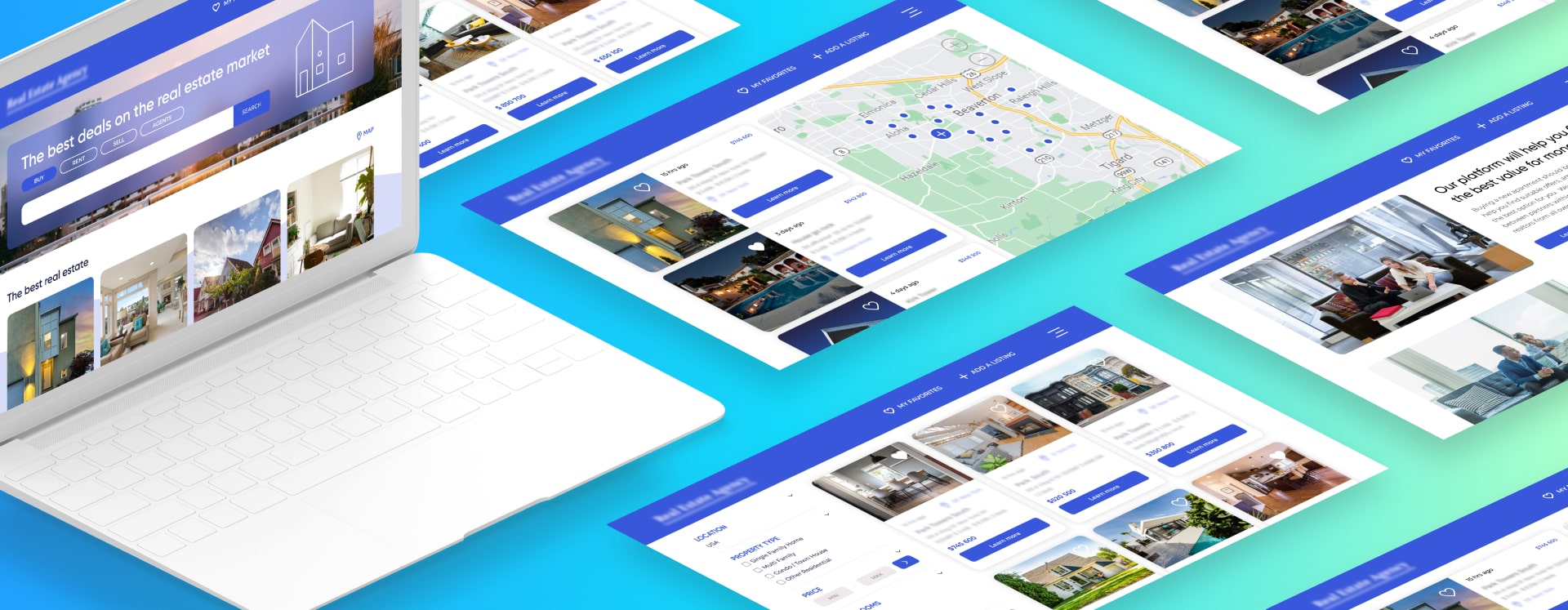
We’d love to work with you
Drop us a line about your idea, project, or challenge.
We’d like to discuss how we can help you.

Learn how our team converted a simple property listing website into a fully-fledged real estate marketplace platform while ensuring scalability, performance, and security.
6 months
2 backend developers, 2 frontend developers, 2 UI/UX designers, a quality assurance engineer, project manager, business analyst.
TypeScript, JavaScript, React, Photo Sphere Viewer, Highcharts, Storybook, webpack, ESLint, Python, Django, AWS, Elastic Load Balancing, Amazon S3, Amazon EKS, Elasticsearch, Docker, Bitbucket Pipelines, Firebase, RabbitMQ, Redis, Memcached, SendGrid, Apollo, GraphQL API, Google Maps API, Google Places API, Braintree API, PostgreSQL.

Drop us a line about your idea, project, or challenge.
We’d like to discuss how we can help you.